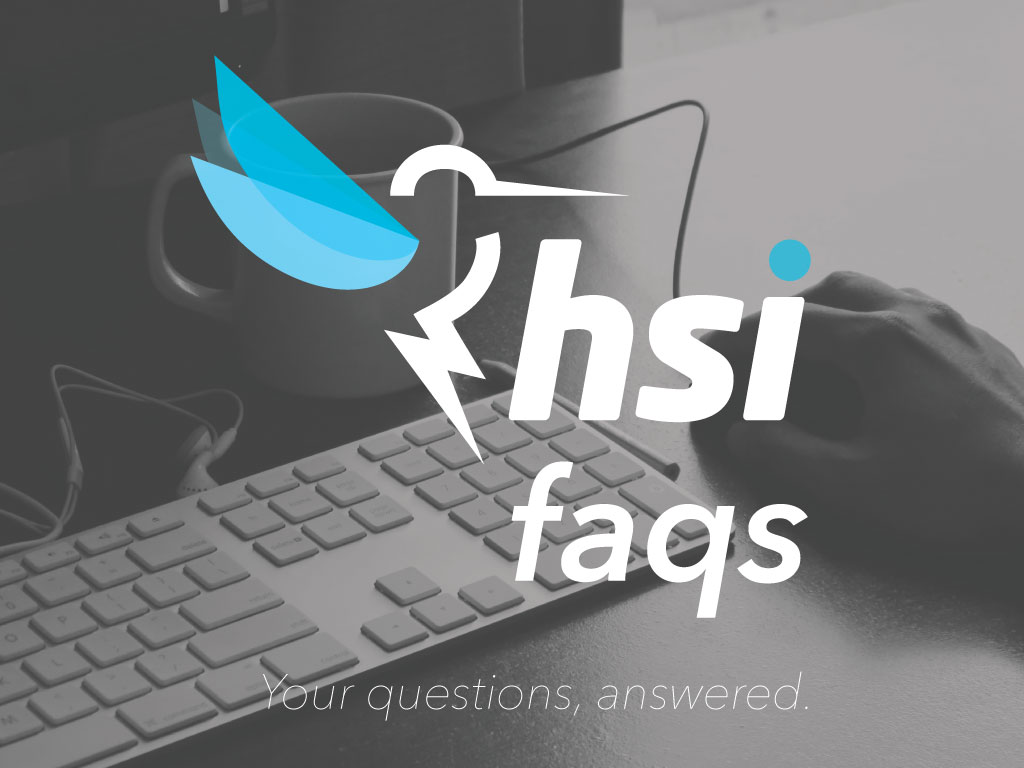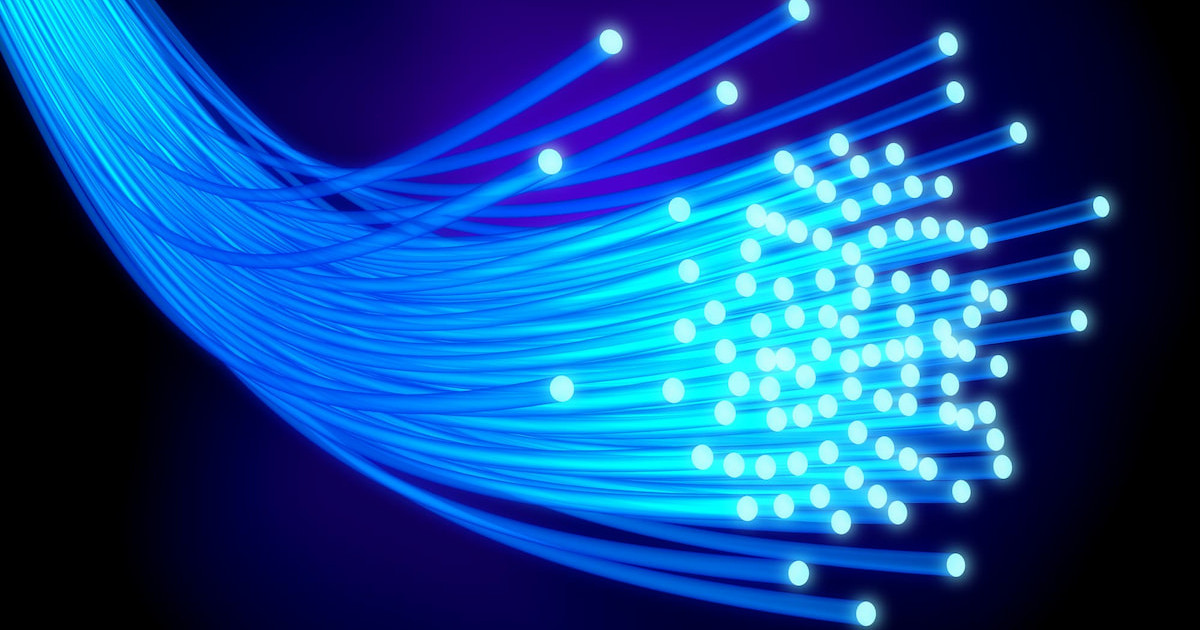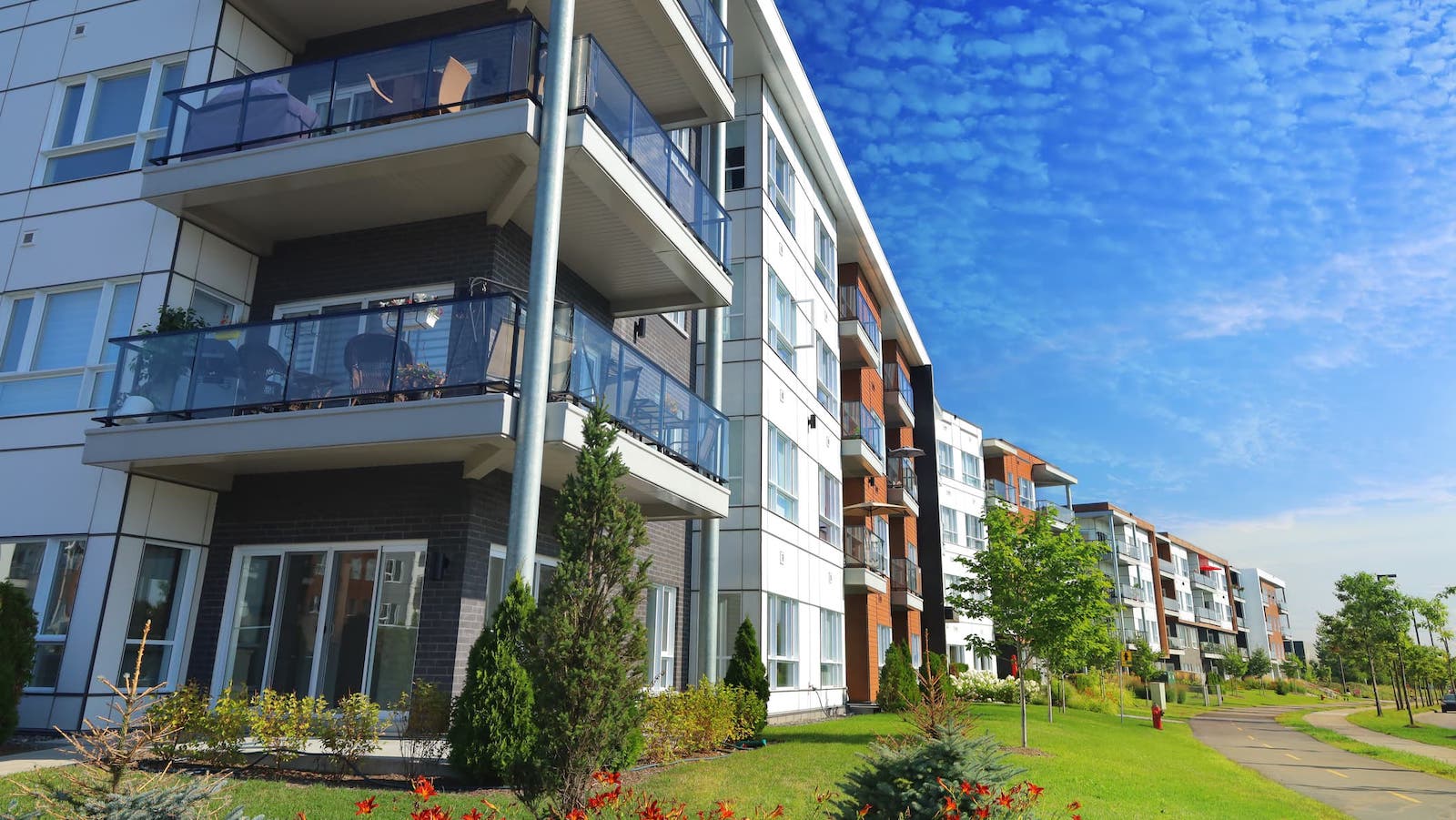How Much Should I Be Paying for High-Speed Internet?
Ways to avoid getting ripped off on your internet bill
Jul 7, 2025 | Share
FAQ
-
Best price for cable internetXfinity 500 Mbps
- Wide availability
- Low price
- Data caps
- Starting at: $55.00–$100.00/mo.*
for 12 mos. - Speed: 500Mbps
-
Best price for fiber internetOptimum 300 Mbps Internet
- Superfast speeds
- Price hikes after promo period ends
- Limited availability
- Starting at: $40.00/mo.†
- Speed: 300Mbps
-
Best price for gigabit internetZiply Fiber Internet Gig
- Free installation and unlimited data
- $10 monthly router rental fee
- Limited availability
- Starting at: $50.00/mo.‡
- Speed: 1,000Mbps
See full disclaimers.
Most people can get good high-speed internet for about $70 per month. If you’re just starting your search for home internet, or hoping to switch providers, that’s the benchmark we recommend. Ideally, that $70 price tag would cover:
- Download speeds of 100Mbps or better
- Included Wi-Fi equipment (modem+router or gateway)
- Extra fees such as Wi-Fi access or infrastructure fees
Exactly what’s available to you will depend on where you live and which providers offer internet service in your area. According to our in-house research, internet plans range in price from $20 to well over $100 a month.
Read on for our guide on getting the best price for internet service. We also have some tools to help you find the best deals near you.
On this page:
How to pay less for internet | What to know when buying internet | Connection type | Availability | Extra fees | Price hikes | Data caps | Annual contracts
On this page:
How much does internet service cost per month?
Internet costs vary based on where you live and which type of service you have. The type of internet connection you have is the most significant factor in how much you should be paying for your Wi-Fi plan. Internet type determines the kinds of download speeds you can get and has a big impact on the overall quality of your service.
We crunched the numbers in our proprietary pricing database and found average prices for the following:
- DSL: $60 per month
- 5G home internet: $67 per month
- Fixed wireless internet (including LTE and 5G): $72 per month
- Cable internet: $59 per month
- Fiber internet: $85 per month
- Satellite internet: $121 per month
- All advertised internet plans in the U.S.: $77 per month
These prices do not include extra fees for things like equipment rental, and do not factor in price hikes that occur after promotional periods end.
Internet prices by connection type
| Internet type | Price | Max speed | Availability % in the U.S.* |
|---|---|---|---|
| Fiber | $20.99–$300.00/mo. | 10,000Mbps (10Gbps) | 40.43% |
| Cable | $20.00–$120.00/mo. | 1,500Mbps (1.2Gbps) | 83.16% |
| DSL | $50.00–$64.95/mo. | 140Mbps | 51.65% |
| 5G | $35.00–$70.00/mo. | 1,000Mbps (1Gbps) | 47.58% |
| 4G LTE | $60.00–$129.00/mo. | 50Mbps | 67.44% |
| Fixed wireless | $15.00–$90.00/mo. | 1,000Mbps | 77.56% |
| Satellite | $19.99–$250.00/mo. | 220Mbps | 99.95% |
Data as of 4/3/24. Offers and availability may vary by location and are subject to change.
*Percentages are based on internet availability data from the Federal Communications Commission (FCC).
Get Your Internet Speed Recommendation
Est. time: 60 seconds
Answer six questions and get your personalized results!
How many people in your household use the internet/WiFi on a daily basis?
How many devices in your home connect to the internet, including tablets, gaming consoles, and smart devices?
How many people in your household work from home?
What video quality do you use for streaming TV and movies?
How intensely does your household participate in online gaming?
Does your household download large files from the cloud or via the internet?
How can you pay less for internet?
If you’re looking for affordable rates and better offers on your internet bill, here’s a quick rundown of tips and tricks. There are a lot of things you can do to get a great internet deal–you just have to be resourceful and take some extra steps.
| Look for a provider that offers internet deals for less than $50 a month. Potential savings: $200–$600 per year. | |
| Get an internet plan with no annual contract and no data caps. Then you don’t have to pay early termination fees or overage fees. Potential savings: $10–120 per year. | |
| Look for internet deals such as rewards cards and waivers on extra fees. Potential savings: $50–$100. | |
| Buy your own equipment such as a modem + router or gateway to avoid paying a rental fee from your provider. (Just make sure you’re using compatible equipment.) Potential savings: $120–$180 per year. | |
| Downgrade your plan to a slower internet speed. There’s no point in paying for bandwidth you don’t use. Use our “How Much Internet Speed Do I Need?” tool for a personalized recommendation. Potential savings: $200–$600 per year. | |
| Use a public Wi-Fi hotspot at a library or public park to avoid paying a monthly bill altogether. |
Pro tip:
Take a speed test to figure out how fast your internet is right now. If you need a connection with more firepower, it might be time to switch to a new plan.
What factors determine your internet’s price?
Here’s a quick rundown of factors that influence internet prices:
- Internet speed—Faster speeds usually cost more.
- Availability—Urban areas have more options for low-priced plans, while rural areas tend to have fewer options and higher prices.
- Installation, equipment, and extra fees—Some internet plans include extra fees on top of the service fee.
- Internet connection type—Reliable connection types such as fiber and cable cost about the same (or even less) than slower connection types like DSL. All else being equal, though, faster plans mean higher prices.
- Price hikes—Some plans look cheap because they start with low introductory prices, but watch out for price hikes that kick in after a year of service.
- Data caps—Internet providers usually put a monthly cap on the amount of data you can use, with overage fees tacked onto your bill if you go over.
- Annual contracts—The best annual contract is no annual contract. Having no contract means you can cancel without paying early termination fees.
Looking for an easy way to test and track your internet speed?
Take our internet speed test or download our free speed test app to test your speed from anywhere.
Download our free, easy-to-use speed test app for quick and reliable results.
Internet cost and availability
Usually there’s only a handful of internet service providers available in any given area. However, some areas have only a single provider. No matter where you live, you’ll be limited to a set number of internet plans, prices, and download and upload speeds.
Looking for internet options in your area?
Run a search with your zip code to see a list of providers near you.
Internet cost and extra fees
Your total cost for home internet is more than just your plan price. You should also factor in prices for installation, fees for any equipment you need to rent, any additional hidden fees, and taxes. Navigate to the “Fees” section of each of our expert reviews for details on final costs vs. quoted prices.
There may also be other ways to reduce your extra fees—or get rid of them entirely. Here are a few suggestions:
How to save on extra internet fees
- Shop for deals and promotions. We keep track of the best internet deals each month from major internet service providers nationwide.
- Buy your own router or gateway. You can save money on rental costs by buying your own modem and router.
- Get a fiber internet plan. Most fiber internet providers offer free Wi-Fi gear and free installation. Order online for the best possible pricing.
- Give 4G or 5G home internet a try. Neither T-Mobile Home Internet nor Verizon 5G Home Internet charge for installation or equipment rental, and both regularly offer deals and promotions to sweeten the pot.
Pro tip:
Looking to buy your own modem and router? We have lots of recommendations, whether you need a long-range router or a router for streaming. Our favorite overall is TP-Link’s Archer AX11000 thanks to its long range, free security, and ease of use.
Amazon.com Price (as of 4/3/2024 15:15 MT). See full disclaimer.
Internet cost and government subsidies
If you’re concerned about the cost of your internet bill, you can look into government subsidies to help lower the price.
The biggest federal benefit is the Lifeline program, which pays $9.25 per month toward qualifying mobile phone or broadband plans for certain low-income households. Learn more about cheap internet plans and taxpayer-supported initiatives for free and low-cost internet in our expert library.
Pro tip:
To find out about more state and local subsidies where you live, search “internet assistance” and the name of your state in a search engine. In most states, you’ll find an office of broadband or an assistance agency.
Internet cost and price hikes
Internet providers often seek to attract new customers by offering low “promotional” prices on their internet packages—only to hike up the monthly price when the promo period ends (usually after 12 or 24 months). Cable and DSL providers tend to be the worst culprits, but we’ve seen it across the board.
Sometimes price hikes aren’t a big deal—maybe just $5 per month. But, in other cases, the price hike buried in the fine print can increase your bill by $30 per month.
How to deal with internet price hikes
- Look at the fine print. See if there are price hikes buried in your bill and do some number crunching to make sure the price will still be worth it.
- Try to get a no-contract internet plan. That way, you can cancel your plan without paying early termination fees when the price goes up
- Negotiate with customer service. When you’re getting close to the end of your promotional pricing period, give your provider a call and push for a new deal.
- Look for fixed rates. Switch to an internet provider that gives you a fixed monthly rate, including equipment and installation.
Pro tip:
Find out how to lower your internet bill—there are lots of things you can do!
Internet cost and data caps
Many providers put a cap on the amount of internet data you can use per month, and going over can lead to extra charges on your bill. But not all providers do this.
If possible, avoid overage fees and speed slowdowns by picking a plan that gives you unlimited data.
Data as of 02/20/2025. Offers and availability may vary by location and are subject to change.
Pro tip:
We’ve got all the details on which internet providers have data caps. Learn which ones do and which ones don’t—because knowledge is power.
Internet cost and annual contracts
Depending on your internet plan, you may be required to sign an annual commitment with your provider. This means you’ll have a contract that renews every year. To cancel your service early, you’ll need to pay early termination fees (ETFs)—usually $10 to $12 for each month you have left on your contract.
Annual contracts probably won’t be a big deal for you if you’ve been with the same provider for a long time and haven’t had any issues. But they can be really inconvenient if you move around a lot or have a provider that delivers subpar service.
Thankfully, more and more internet service providers offer plans with no annual contracts. You can sign up for service and cancel any time.
We recommend going with a no-contract provider if one is available in your area; otherwise, just be prepared to pay out some extra moolah if you want to break your contract early.
Best no-contract internet plans
| Plan | Price | Type | Download speed |
|---|---|---|---|
| Google Fiber Core 1 Gig | $70.00/mo.* | Fiber | 1Gbps (1,000Mbps) |
| Xfinity 500 Mbps | $55.00/mo.† | Cable | 500Mbps |
| Astound 300 Mbps Internet | $30.00/mo.‡ | Cable, fiber | 300Mbps |
See full disclaimers.
Curious to know more?
The plans above all give you internet service with no annual contract required. These are hardly the only options out there. If you’re curious to know more, run a search with your zip code below to find which no-contract internet providers are available in your area.
Disclaimers
How Much Should I Be Paying for High-Speed Internet? (return to top)
*Xfinity 500 Mbps
For 12 months, no term contract. Restrictions apply. Autopay w/ stored bank account and paperless billing req’d. Taxes and fees extra and subj. to change. Reduced speeds after 30 GB of usage/line. Data thresholds may vary.
† Optimum 300 Mbps Internet
Offer for new residential customers. Advertised price reflects $5 discount for enrolling in Auto Pay & Paperless Billing, must maintain both to keep discount.
‡ Ziply Fiber Gig
For 12 months w/ paperless and autopay. No annual contract required. For new residential customers only. No annual contract required. Prices shown are before taxes and fees and require autopay and paperless billing. Service may not be available in all areas. Speeds shown for wired connections. Observable speeds will vary.
Best no-contract internet plans (return to top)
*Google Fiber Core 1 Gig
Plus taxes and fees. Upload/download speed and device streaming claims are based on maximum wired speeds. Actual Internet speeds are not guaranteed and may vary based on factors such as hardware and software limitations, latency, packet loss, etc.
† Xfinity 500 Mbps
For 12 months, no term contract. Restrictions apply. Autopay w/ stored bank account and paperless billing req’d. Taxes and fees extra and subj. to change. Reduced speeds after 30 GB of usage/line. Data thresholds may vary.
‡ Astound 300Mbps Internet
Observed speeds may vary | One-time fees extra | Restrictions apply | Not available in all areas | New residential customers only
Amazon links
Product prices and availability are accurate as of the date/time indicated and are subject to change. Any price and availability information displayed on Amazon.com at the time of purchase will apply to the purchase of this product. HighSpeedInternet.com utilizes paid Amazon links.
CERTAIN CONTENT THAT APPEARS ON THIS SITE COMES FROM AMAZON. THIS CONTENT IS PROVIDED ‘AS IS’ AND IS SUBJECT TO CHANGE OR REMOVAL AT ANY TIME.
Author - Peter Holslin
Peter Holslin has more than a decade of experience working as a writer and freelance journalist. He graduated with a BA in liberal arts and journalism from New York City’s The New School University in 2008 and went on to contribute to publications like Rolling Stone, VICE, BuzzFeed, and countless others. At HighSpeedInternet.com, he focuses on covering 5G, nerding out about frequency bands and virtual RAN, and producing reviews on emerging services like 5G home internet. He also writes about internet providers and packages, hotspots, VPNs, and Wi-Fi troubleshooting.
Editor - Cara Haynes
Cara Haynes has been editing and writing in the digital space for seven years, and she's edited all things internet for HighSpeedInternet.com for five years. She graduated with a BA in English and a minor in editing from Brigham Young University. When she's not editing, she makes tech accessible through her freelance writing for brands like Pluralsight. She believes no one should feel lost in internet land and that a good internet connection significantly extends your life span.






